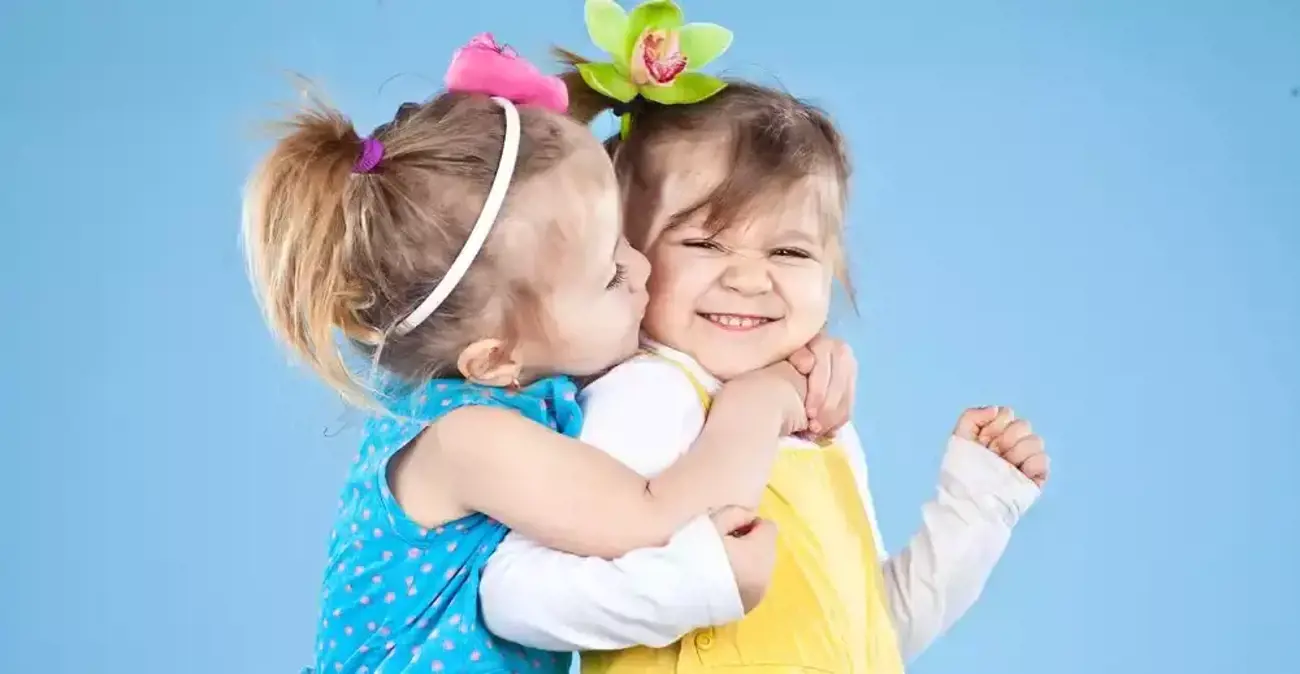As parents, we want the best for our children, and this doesn't just mean the best experiences or opportunities. It also means raising our children to be respectful and responsible adults, who are capable of sharing, caring and making positive contributions to our world.
Although every person has their own character traits, there are ways to teach your child how to be kind and grateful – two qualities that will benefit them in their lives, and benefit others too. Here's how.
3 ways to teach your child to be kind
Dr Thomas Lickona is the author of 'How to Raise Kind Kids: And Get Respect, Gratitude and a Happier Family in the Bargain' and he sees several compelling reasons to encourage kindness.
He says, 'We make others happy when we treat them kindly and are happiest ourselves when we do so. It's the best antidote to bullying in schools. It's the foundation of a happy home. It's the heart of a good society.'
With this in mind, how can you foster kindness in your child? Dr Lickona suggests that you model and teach this virtue by:
- Using the 'language of kindness' when speaking to them: for example, you can say things like, "That was a kind thing to do" or "How can you settle this in a kind and peaceful way?"
- You should also teach your child to be helpful: this means giving them some jobs to do, from the age of two, with a focus on cooperation. Dr Lickona recommends one job per age year, so a three-year-old will have three jobs to do, such as pressing 'Start' on the dishwasher, tidying bed pillows, and setting the table.
- Overall, you should encourage respect: this includes respect for themselves and others, respect for authority, respect for property and respect for life generally, including animals and the environment.
Of course, as important as kindness is, it's not the only quality we should foster in our children. Along with virtues like courage and giving, Dr Lickona says that gratitude is intertwined with kindness, so let's look at how you can encourage this as well.
5 ways to teach your child gratitude
Although it's natural for young children to live in the moment and see the world from their own perspective, it's also important that they learn how to be grateful for what they have and generous towards others.
An 'attitude of gratitude' enriches everyone’s lives and, as a parent, you play a key role in encouraging this positive mindset and behaviour. To help you model thankfulness and teach your child the art of 'give and take', Bright Horizons recommends that you:
- Show your child what gratitude looks like: little people learn from their parents, so when your child shares a treat or gives you something thoughtful, make sure you thank them enthusiastically, even if the gift is a cake crumb or bedraggled three-leaf clover.
- Spend lots of time together: whether you're at home or enjoying a special outing, generous amounts of 'us time' teach your child how to receive love and feel special, which translate to gracious attitudes towards others.
- Focus on the positives at dinnertime: instead of taking things for granted, take turns describing something good that happened to each of you during the day.
- Be helpful and thankful to others: whether you thank an educator at the end of the child care day, your family collects mail for a holidaying neighbour, or your child writes thank you cards after a birthday, these little acts of kindness are great ways to teach gratefulness and generosity of spirit. When your child receives gratitude in return for their efforts, they’ll be more inclined to live helpfully and thankfully.
- Manage expectations: as adults, we know to say, "Thank you" no matter what gift we receive, however, a child may not be so tactful. If they ‘forget’ to be grateful for a disappointing gift, then explain to the giver that their graciousness is appreciated. Later on, explain to your child that it's important to give thanks, even if the gift was not what they had hoped for.
Kindness and gratitude are two important traits to nurture in your child and with encouragement and guidance, little people can move through life with big hearts.
References:
First Five Years
Bright Horizons
































